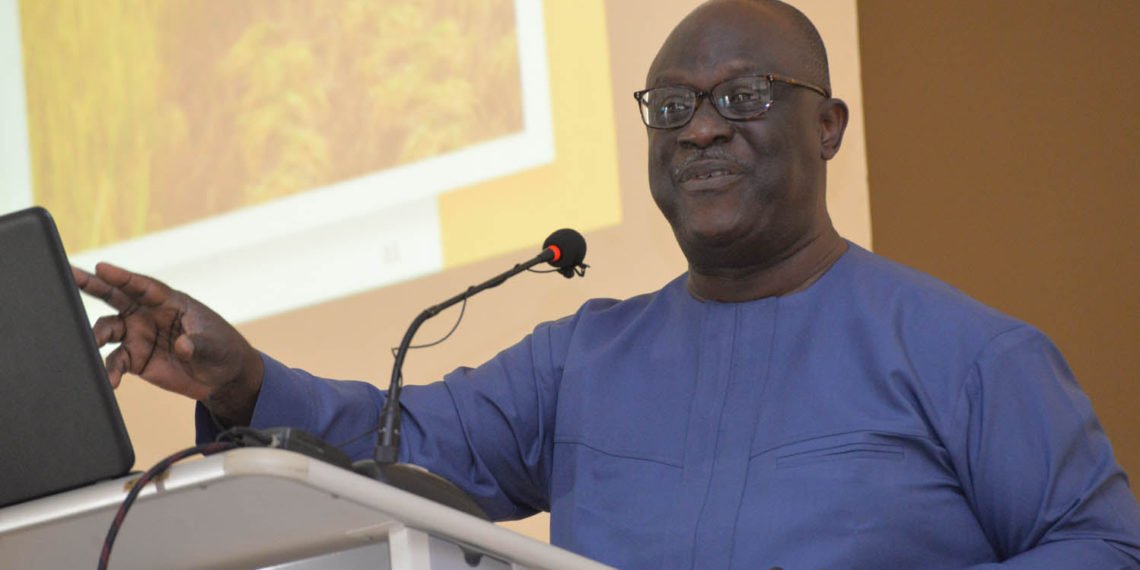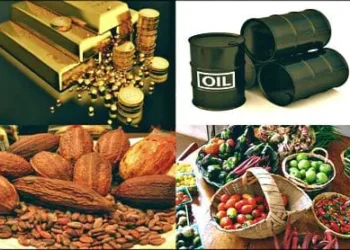The Chief Executive Officer for the Ghana Incentive-Based Risk-Sharing System for Agriculture Lending (GIRSAL), Mr. Kwesi Korboe points out that the agriculture sector remains resilient despite the global effects of the Covid-19 pandemic and thus, as a country, there is the need to focus on transforming the agriculture sector.
Speaking at a panel discussion organized by the Institute of Statistical Social and Economic Research (ISSER), University of Ghana, on the theme: “Boosting Agricultural value Chain in the midst of Covid-19 and Political Party Manifestos,” he said, whilst stressing on the medium-to-long term effects of the pandemic on agriculture and lessons learnt, that the emergence of Covid-19 has shown that the agricultural sector needs to be taken seriously.
“There has been restoration of food prices and exports of agricultural produce since the second quarter of 2020,” he said.
Mr. Kwesi Korboe intimated that the resilience of the sector sprang from the vast impact the sector had on other parts of the economy, stating that raw material and food items produced remained relevant during the pandemic. He indicated that cocoa sector grew by 7.2% whiles the livestock sector grew by 5.7%. Despite the lockdown and restrictions in the fight to contain Covid-19, the production of cocoa, cashew and other cash crop products were not affected, he added.
In transforming the sector to bolster the economy, Mr. Kwesi Korboe said there is the need for targeted investment into an efficient production system and infrastructure, to promote food security and industrialization and to encourage farmers to take advantage of mechanization and cost-efficient methods. Additionally, he said to drive the agro-industry, new arrangements for the preservation of perishable goods should be considered for agro-processing companies to keep products safe.
Professor Irene S. Egyir, Senior Lecturer of the Department of Agriculture Economics and Agribusiness, University of Ghana, also added that there is the need for better incentives to make Agribusiness attractive to the youth.
“Even my students are not willing to go into Agriculture because the sector lacks good incentives,” she said.
She revealed that the reduction of interest rates on loans contracted by farmers would make their work much easier and boost productivity. She explained that farmers had to keep to manual farming because they could not afford mechanized systems and the use of modern technological software and gadgets in their production.
A Lecturer at Bio-tech Centre, University of Ghana, Dr John S.Y. Eleblu said the use of improved seeds and technology is the way to boost production of farm produce. He said the use of technology, improved infrastructure and research development would help reduce post-harvest losses of farm produce.
Director, ISSER, Professor Peter Quartey, speaking on the manifestos presented by the New Patriotic Party and the National Democratic Congress on agriculture, said both documents were filled with promises and he expects that a clearer means for funding of the listed initiatives be captured.
Senior Research Fellow at ISSER, Dr Fred Dzanku, also added that since the birth of the 4th republic, all party manifestos had captured the improvement of irrigation farms but farms under irrigation still remained 2%, stating that there is a need to improve irrigation farms due to the impact of climate change on production. He reiterated the fact that it seems the two main political parties, NPP & NDC were competing on the basis of number of promises made in their manifestos as it’s clear that most of the promises are practically impossible in their first 4yrs of office. He then cautioned the main political parties to focus their policies on addressing the well-known agricultural problems, achievable in their first term of office.























